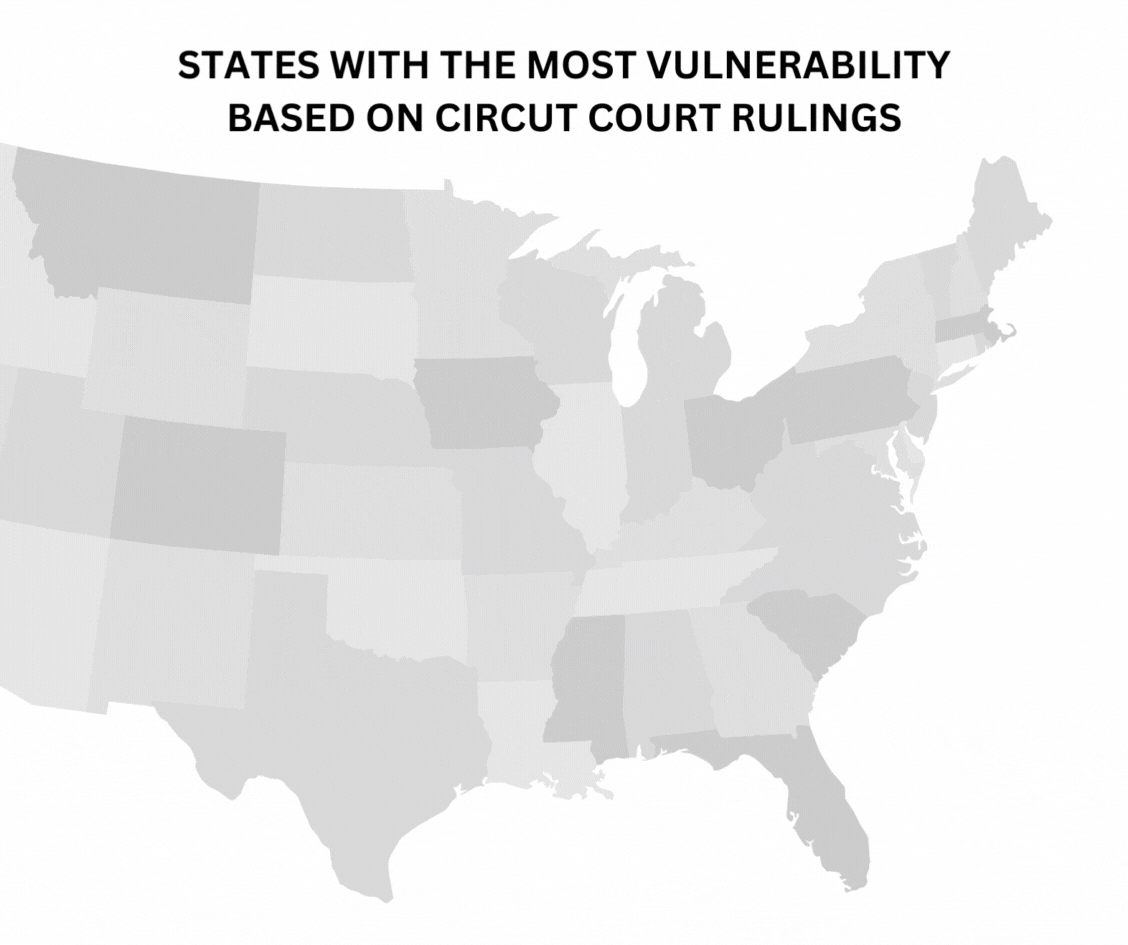How Court Case Rulings Around Website Access For the Disabled Can Legally Expose Your Website
by Brian Lawrence
The Americans with Disabilities Act (ADA) of 1990 has transformed the way businesses address the needs of disabled Americans for over 30 years. The landmark ADA legislation sought to protect individuals with disabilities in numerous areas, including employment, public services, and telecommunications. Since the rise of the World Wide Web, the ADA guidelines have grown to include services in the digital realm.
Thanks to the Web Content Accessibility Guidelines (WCAG) developed by the World Wide Web Consortium (W3C), businesses and web developers must add accessibility software to websites to aid those with disabilities. This includes text readers and easy navigation tools. It has long been thought that these guidelines apply to e-commerce websites in addition to the websites of brick-and-mortar businesses.
Neglecting to implement accessibility options on your wedding industry website can open you up to legal trouble, which may cost you financially and damage your reputation. The legal issue of website accessibility is at the forefront now more than ever, thanks to numerous court cases involving website accessibility testers, also known simply as “Testers.”
Who Are Web Accessibility Testers?
Testers are individuals who use their own time to test the accessibility features of websites and digital applications. Often, Testers have no real intention of using the service provided by the website in question. However, they may still pursue legal action against a business for discrimination if a website fails to accommodate disabled people according to Title III of the ADA.
Current Litigation Involving Accessibility Guidelines
A Florida woman and self-appointed Tester, Deborah Laufer, has sued over 600 hotels on behalf of disabled people around the U.S. Recently, Laufer sued Acheson Hotels because she felt the small Maine hotel’s website violated the Reservation Rule.
According to labor and employment law firm Jackson Lewis, The Reservation Rule demands that all lodging facilities accurately describe accessibility features using a reservation service. Acheson Hotels has argued that Laufer had no intention of staying at any of the hotels in question, opening up potential legal issues for businesses that anyone can deem inaccessible around the country.
Rulings split amongst several district appeals courts all but assured the case would head to the Supreme Court, with the Second, Fifth, and Tenth Circuits claiming that Laufer had legal standing where the Fourth and Eleventh Circuits claimed she did not.
In December 2023, the Supreme Court dismissed the case, which sought to answer whether Testers have the right to sue hotels they aren’t going to visit. According to the Washington Post, the Supreme Court decided that the split rulings of the appeals courts and Laufer’s pledge to no longer sue hotels rendered the case moot. However, the court left open the possibility of revisiting the case in the future, leaving Testers and businesses in limbo.
Protecting Your Wedding Business From Legal Consequences
Which Regions Are Most at Risk?
With split court decisions nationwide, businesses are left vulnerable regarding ADA guideline compliance.
There are Tester cases throughout the country in different circuit courts, leading to split decisions. The urgency with which your company should address its accessibility guidelines depends on location. The First, Fourth, and Eleventh Circuits have ruled that Testers have standing. If your business operates within the jurisdiction of those circuit courts, you’re open to lawsuits from testers.
Here are the states that have the most vulnerability based on rulings from circuit courts that favor the right to sue:
1st Circuit Court: Maine, Massachusetts, New Hampshire, Puerto Rico, Rhode Island.
4th Circuit Court: Maryland, North Carolina, South Carolina, Virginia, and West Virginia
11th Circuit Court: Alabama, Florida, Georgia
Florida, California, New York, and Pennsylvania had the most ADA website lawsuits in the USA in 2023.
By November 2023, several first-time plaintiffs had collectively filed hundreds of accessibility lawsuits against small businesses. You should assume that Testers will continue monitoring websites for accessibility features as the legal questions surrounding the subject continue.
To avoid any possibility of legal challenges, you should implement accessibility features into your business website(s) as soon as possible if you haven’t done so already. Wedding industry businesses offering lodging should make sure their websites comply with Title III of the ADA guidelines.
Stay Up to Date on New Accessibility Requirements
In October 2023, W3C added nine new accessibility requirements in WCAG 2.2. Some new criteria address dragging movements, clickable element size, and auto-populated information to aid those with cognitive disabilities.
Installing our accessibility platform on your website will help you meet ADA standards up to 48 hours after installation. Utilize monthly accessibility reports and customizable widgets. Don’t leave your website at risk of lawsuits due to non-compliance for another moment. Take our ADA Compliancy Test and stay ahead of accessibility trends.








